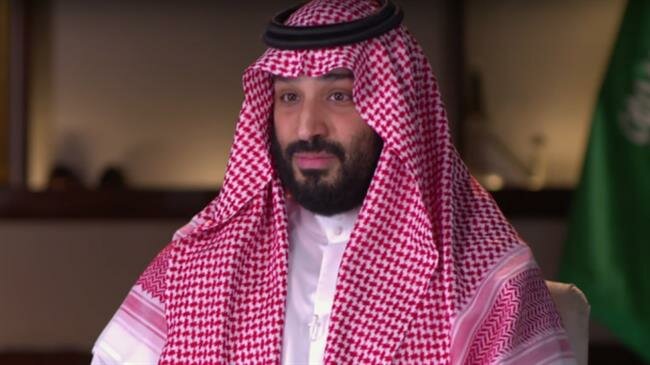Speaking during an interview with CBS News aired on Sunday, bin Salman said a “political and peaceful solution is much better than the military one” in tensions with Tehran.
“The region represents about 30% of the world’s energy supplies, about 20% of global trade passages, about 4% of the world GDP. Imagine all of these three things stop,” the crown prince said.
Bin Salman urged the “world” to act on easing tensions, saying further escalations in the region could push oil prices to “unimaginably high numbers that we haven’t seen in our lifetimes.”
Anwar Gargash, minister of state for foreign affairs of the United Arab Emirates, made similar remarks in an op-ed published by the Financial Times on Sunday.
Gargash, whose country is a close Saudi ally, called for talks with Iran in a bid to decrease tensions and “reduce the potential for miscalculations, missteps and retaliation on all sides”.
Bin Salman’s comments, along with those of Gargash, represent a stark break with their provocative rhetoric in the past against Iran.
In May 2017, the Saudi crown prince accused Tehran of attempting to dominate the Muslim world and pledged to take the war “inside Iran.”
Saudi Arabia has since been a main backer of Washington’s campaign of “maximum pressure” against Tehran, pledging to ramp up its oil output to weaken Iran and strengthening ties with various anti-Iran groups.
Political solution in Yemen
In his interview with CBS News, the crown prince also signaled a withdrawal from his ambitions in Yemen, expressing interest in a “political solution” and welcoming a recent Ansarullah peace proposal.
When it launched its invasion of Yemen in 2015, Riyadh looked forward to a decisive victory which would return the pro-Saudi government of former president Abd Rabbuh Mansour Hadi to power and crush the Ansarullah movement. Four years on, none of those objectives have been achieved.
The Saudi crown prince’s apparent about-face comes two weeks after an attack launched by Yemeni forces inflicted substantial damage on the oil-rich kingdom’s Khurais and Abqaiq oil facilities.
The attacks effectively shut down about half of the kingdom’s crude and gas production.
Washington and Riyadh were quick to blame Iran for the devastating raid without any evidence, reasoning that they did not expect Yemen to be capable of such a high-profile raid.
On Sunday, Yemeni armed forces announced a major victory against Saudi troops and their mercenaries on the battlefield, claiming to have inflicted hundreds of casualties on enemy forces in a war which is increasingly turning into a quagmire for Riyadh.
